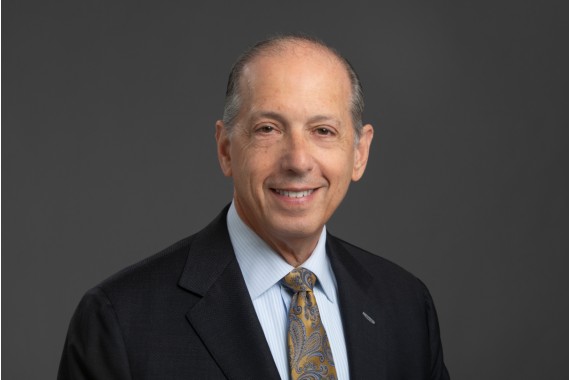
Larry J. Goodman, MD, became interim president of RUSH University in July 2022. He previously was CEO of RUSH University Medical Center from February 2002 to May 2019, and served a dual role as president of RUSH University until February 2019. In addition, Goodman was the first CEO of the RUSH University System for Health, serving in this role from March 2017 to May 2019.
Before his appointments as CEO, Goodman served as senior vice president of medical affairs and dean of RUSH Medical College. From 1995 to 1998, Goodman was the medical director of John H. Stroger, Jr. Hospital of Cook County. Before that appointment, he served at RUSH University Medical Center as an infectious disease specialist, associate dean of RUSH Medical College and, prior to that appointment, assistant dean of clinical curriculum.
Goodman is a 1976 graduate of the University of Michigan Medical School, and he completed a residency in Internal Medicine and a fellowship in Infectious Disease at RUSH University Medical Center. During his fellowship he served as chief medical resident before joining the faculty.
Goodman served on the Board of The CORE Foundation, a model public-private venture between Cook County and RUSH University Medical Center that established The Ruth M. Rothstein CORE Center, which cares for approximately 7,000 patients with HIV/AIDS. He was a member of the Commercial Club of Chicago, previously served on the board of the Joffrey Ballet, and Access Living, a disability rights organization, and is currently a board member of the Civic Consulting Alliance, which provides pro bono consulting services to the City of Chicago and Cook County in areas of greatest public need. Goodman also is a member of the board of Sentry Insurance, a mutual company.
Goodman has received numerous honors including being the inaugural recipient of the John F. Benjamin Service Award of the Michael Reese Health Trust; the Health and Medicine Policy Research Group Lifetime Achievement Award: a resolution by the Mayor of Chicago to make Nov 21, 2019 Honorary Larry Goodman Day in recognition of his service to Chicago-land; City of Chicago Malcolm X College Legacy Award: Casa Central Pastora San Juan Cafferty Legacy Award; Chicago Cook Workforce Distinguished Service Award; the Phoenix Award RUSH Medical College classes of 1988, 1989, and 1990, selection by RUSH medical students as a faculty member of AOA, the honors medical society, and the 2022 distinguished alumni award from RUSH Medical College.
